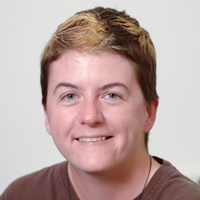Other News
Richard Youngs Publishes New Book on Ukraine Conflict
Professor Richard Youngs has published a new book on the Ukraine conflict, titled 'Europe's Eastern Crisis: The Geopolitics of Asymmetry.'

In recent years, a series of crises have erupted on the European Union’s eastern borders. Russia’s annexation of Crimea and the subsequent conflict in eastern Ukraine presented the EU with a major foreign policy challenge, both in Ukraine and across the other countries of the Eastern Partnership. In response, the EU has begun to map its own form of “liberal-redux geopolitics” that combines various strategic logics. This book traces the effect of these crises on the foreign policy of the EU, examining the changes in policies toward the countries on its eastern borders, the EU’s review of the Eastern Partnership, as well as the EU’s relations with Russia overall. It goes on to uncover whether the EU has contained the crisis or if it has set up new conditions for more instability in the future.
Reviews for this publication
“Richard Youngs’s new account of the complex geopolitical context in the Eastern Partnership region provides a nuanced, sophisticated, and empirically rich study that is invaluable in taking into account the opinions of diplomats, policymakers, and civil society in the EaP states themselves.”
—Eka Tkeshelashvili, head of EU Anti-Corruption Initiative in Ukraine, former Georgian foreign minister, and president of the Georgian Institute for Strategic Studies
“Ukraine and other states between these two ‘empires’ feel the heat again, and Richard Youngs’s book expertly maps a complex mosaic of power, ambition, and brinkmanship. Youngs’s engaging and balanced analysis is indispensable reading for everyone trying to comprehend the ongoing geopolitical turn and the evolution of the EU’s foreign and security policy.”
—Jan Zielonka, professor of European Politics, University of Oxford
The book is available to purchase through Cambridge University Press.
Dr. Maria Koinova's Article Selected in IPSR Choice Collection
 Dr. Maria Koinova's article "Sustained vs. Episodic Mobilization among Conflict-generated Diasporas" International Political Science Review 37(44): 500-516, has been selected by the editors of the IPSR journal for their Choice Collection on the topic of "Borders and Margins" in view of the forthcoming World Congress of the International Political Science Association in July 2018 in Brisbane, Australia. They have also opened full access to this article.
Dr. Maria Koinova's article "Sustained vs. Episodic Mobilization among Conflict-generated Diasporas" International Political Science Review 37(44): 500-516, has been selected by the editors of the IPSR journal for their Choice Collection on the topic of "Borders and Margins" in view of the forthcoming World Congress of the International Political Science Association in July 2018 in Brisbane, Australia. They have also opened full access to this article.
More information about the Editor’s Choice Collection is available here.
2017 Annual Warwick Debate on the Future of IPE
Speakers: Prof. Daniel Mügge (University of Amsterdam), Prof. Peter Newell (University of Sussex), Prof. Shirin Rai (University of Warwick)
Chair: Prof. Nick Vaughan-Williams (University of Warwick)
For 2017 the Warwick IPE debate took up the topic of economic accounting. Specifically speakers were asked to discuss the politics of current, widespread practices of measuring and quantifying what matters in the world, but from three differing IPE perspectives: economic, feminist, and environmental.
The degree to which we tend to quantify our economic, political and social lives is now quite staggering. Quantification and measurement are highly important tools used to inform decision making within inter-governmental organisations (IGOs), national and sub-national governance bodies, and parts of civil society. The most common example is gross domestic product (GDP), which is used as the primary indicator of national politico-economic success. Although numbers may seem, on the surface, to be objective simplifications, measuring life in this way is deeply political and has a dark underbelly.
This was a lively debate, attended by students and scholars from the University of Warwick, as well as some scholars visiting from other universities. All three speakers pointed to the inability of statistics, assembled as they currently are, to ‘see’ a wide variety of aspects of life thereby rendering these aspects ‘invisible’ in governance terms. This, in turn, has various political implications not least in terms of: the de facto downgrading of that which is not visible, distributive effects, and the obfuscation and reification of the power relations that sit behind decisions about what to measure and how. Another observation made was that a great many attempts to quantify are inaccurate, or change depending upon ‘who’ is doing the counting. Despite these critical observations, there was some suggestion of using numbers to challenge the status quo, as well as some questions about how to move towards different mechanisms of measuring what does and does not work.
You can watch the 2017 Annual Warwick Debate on the Future of IPE below:
Charlotte Heath-Kelly Giving Lecture at the University of Connecticut, USA
 Dr. Charlotte Heath-Kelly, has been invited by the Department of Political Science, University of Connecticut, USA, to give a lecture. The talk is titled "Taking Pierre Nora to the Bombsite: Memory, Death and Capital."
Dr. Charlotte Heath-Kelly, has been invited by the Department of Political Science, University of Connecticut, USA, to give a lecture. The talk is titled "Taking Pierre Nora to the Bombsite: Memory, Death and Capital."
Pierre Nora has argued that: ‘we speak so much of memory because there is so little of it left’. For Nora, industrialisation and capitalist acceleration were the destroyers of traditional societal structures. Memory industries emerged as methods by which societies could then imagine continuity and identity in response to social dislocation. This talk takes Pierre Nora, and other scholars of memory’s political economy, to the terrorist bombsite. Building upon their historical sociologies of memorialisation, and using her fieldwork from the reconstruction efforts which followed the 9/11 attacks and European bombings, I explore the sublimation of the memorial (and the dead human) to economic agendas and broader rationales of ‘regeneration’ and urban renewal. In post-terrorist reconstruction, the human subject is profoundly displaced by governance which triages economic injury and blight. Economy thereby emerges as the terrain upon which counterterrorism is fought.
The lecture takes place on Thursday April 6th, for more information, please see: http://humanities.uconn.edu/2017/03/25/thursday-april-6-talk-by-charlotte-heath-kelly/
Professor Richard Aldrich to Appear in Channel 4 Documentary
 Richard Aldrich and Rory Cormac have worked with Channel 4 to produce a 2-part documentary on how British spies targeted Edward VIII and Wallis Simpson. New evidence reveals the extent of the surveillance, who ordered it, and the unique insights it provided into Downing Street's response to a constitutional crisis. The first programme will be show on Sunday at 8pm and the second programme will be shown the following week.
Richard Aldrich and Rory Cormac have worked with Channel 4 to produce a 2-part documentary on how British spies targeted Edward VIII and Wallis Simpson. New evidence reveals the extent of the surveillance, who ordered it, and the unique insights it provided into Downing Street's response to a constitutional crisis. The first programme will be show on Sunday at 8pm and the second programme will be shown the following week.
